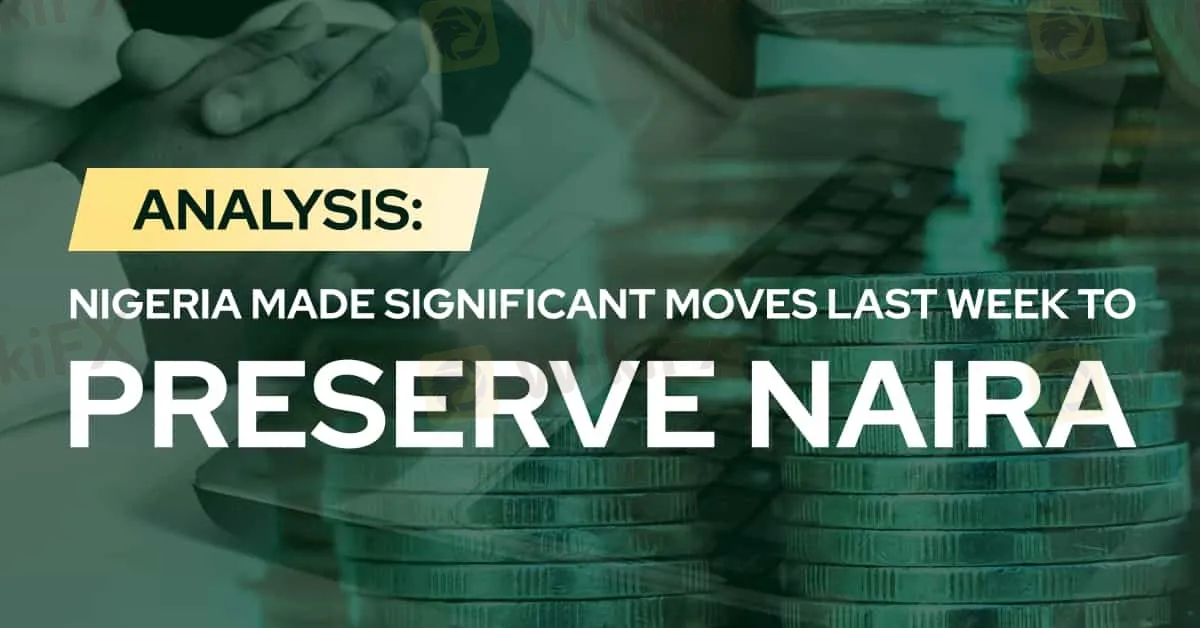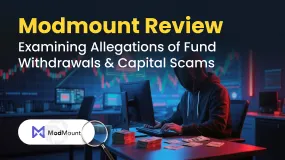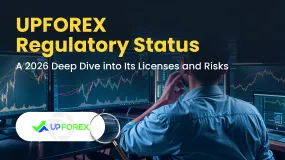Abstract:The uncontrolled foreign exchange market looks to be benefiting from the government's action since Saturday, as evidenced by the naira's little increase by the weekend.

The uncontrolled foreign exchange market looks to be benefiting from the government's action since Saturday, as evidenced by the naira's little increase by the weekend.
Nigeria's naira has regularly lost value in recent weeks on both the official and unofficial markets due to a significant surge in the demand for foreign currency and a steep increase in the cost of goods and services statewide.
Based on figures released by FMDQ, the local currency closed the week at its lowest ever negative rate of N1,665.50/$1. Last week, it traded at an average of N1500 and higher on the spot market.
Similar to this, fear was generated throughout the economy by the extension of the naira's depreciation run on the parallel market last week amid rumors and doubts regarding supply shortages in the foreign exchange markets. Due to rising demand and market instability, the currency fell to a record low of N1,700 throughout the segment.
The Nigerian government responded to this worrying trend by implementing significant rules and reforms meant to protect the nation's foreign exchange market and discourage speculative activity.
The uncontrolled FX market looks to be benefiting from the government's action since Saturday, as evidenced by the naira's little increase by the weekend.
Based on market data that was made public over the weekend, the dollar was trading at N1,500 to the dollar on the parallel market on Sunday, which is lower than the N1,720 and higher it was on Friday.
DIGITAL ASSET SYSTEMS' LIMITATIONS
In an effort to halt the naira's depreciation against the dollar, the federal government, among other things, blocked the websites of Binance and other cryptocurrency businesses last week. This was done to stop the flow of money that wasn't permitted and to stop continuous manipulation of the foreign currency market.
Other websites that were blocked in addition to Binance were Forextime, OctaFX, Crypto, FXTM, Coinbase, and Kraken.
Earlier on Tuesday, the office of the National Security Adviser directed law enforcement to deal decisively with foreign exchange market speculators.
Furthermore, the government announced its plan to raise $10 billion to improve the liquidity of the foreign exchange market.
BDCs
In a concerted attempt to stop currency racketeering, the Economic and Financial Crimes Commission (EFCC) searched and detained several Bureau de Change (BDC) operators across the country on Monday.
It is believed that the simultaneous raids were carried out to stop currency speculators and other people who were seen to be posing a threat to Nigeria's economy.
On Wednesday, Enugu Zonal Command EFCC agents arrested 115 suspected currency racketeers in the state together with representatives from other law enforcement agencies.
According to a statement from the commission, the suspects—113 men and 2 women—were captured during a sting operation along Owerri Road, Ogui, Enugu State. Reliable evidence about the dubious activities of some BDC operators, currency speculators, and street sellers operating illegal foreign exchange markets in the state served as the impetus for the operation.
The EFCC said that several items were found taken from the accused, including N110, 700,000.00, $8,368.00, £145.00, €2,725, 900 South African Rands, 32,000.00 CFA, 100 Turkiya, and 500 Bank Mozambique currencies in different denominations.
Meanwhile, a safe that had been abandoned by a street seller was also discovered. A number of the suspects are foreign nationals from the Niger Republic, according to the commission's preliminary investigation, and they will shortly be charged.
CBN NEWS UPDATES
In the past week, the Central Bank of Nigeria (CBN) has also issued many directives targeted at addressing the problem of the country's depreciating currency.
In a circular sent to all banks last Wednesday, the CBN announced that cash payments for personal and business travel allowances (PTA/BTA) would no longer be allowed.
To promote transparency and accountability in the foreign exchange market, the CBN mandated that all banks process allowances using electronic means.
“Memorandum 8 of the Foreign Exchange manual and the circular with reference FMD/DIR/CIR/GEN/08/003 dated February 20, 2017, stipulate the eligibility criteria for accessing Personal and Business Travel allowances (PTA/BTA)” was the text of the circular, which was signed by Hassan Mahmud, Director of the Trade and Exchange Department.
The CBN requested that everyone, including authorized dealers, adhere to the new guidelines right now in order to facilitate a seamless transition to electronic payouts.
In response to concerns about inconsistent import duty assessment levies, the CBN also issued a directive on Friday asking the Nigeria Customs Service to use the closing FX rate in the official window for import tax computations.
The nation's top bank also announced changes to the regulatory and supervisory requirements for BDC operations.
updated rules
The CBN stated that some entities, such as banks, governments, and non-governmental organizations, are prohibited from owning holdings in BDCs by a number of directives included in the recently amended rules.
The CBN states that BDCs are able to issue prepaid cards, purchase and sell foreign exchange, and act as cash terminals for companies that handle money transfers.
The instructions, which have been amended by the central bank, provide that BDCs can receive foreign exchange from approved dealers, travelers, hotels, and embassies. But for any transaction over $10,000, a source disclosure is required. “Sellers of foreign exchange equivalent to USD 10,000 and above to a BDC must declare the foreign exchange's source and adhere to all AML/CFT/CPF regulations as well as laws and regulations pertaining to foreign exchange,” the bank stated.
According to the RBI, BDCs are able to accept foreign exchange inflows related to employment and expats who have returned from their diaspora. Insiders revealed that the Nigerian government kept an eye out for any unusual behavior in the foreign exchange market before Thursday's Federation Account Allocation Committee (FAAC) meeting. This was done in an effort to prevent any events that would jeopardize the country's currency.










